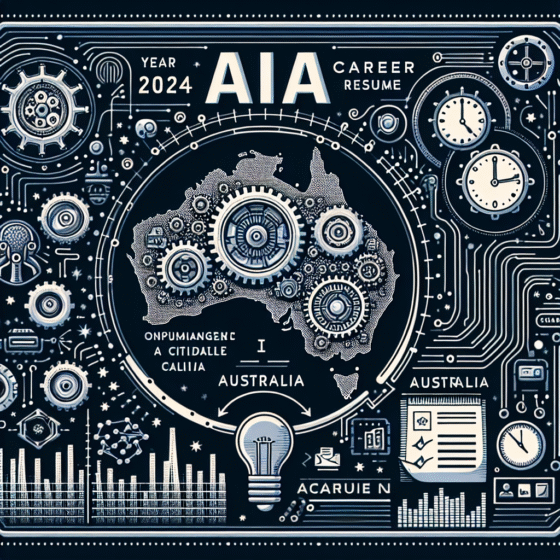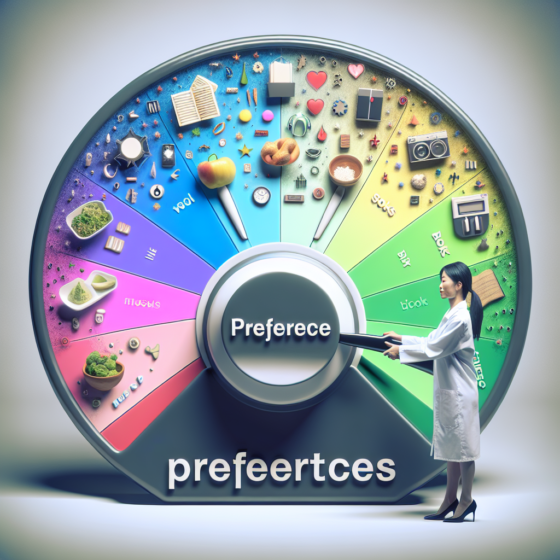Building Diverse AI Teams in Australia: Tackling Bias and Inclusion
Navigating Ethical AI and Diversity in Australia's Economic Future
As Australia rapidly integrates artificial intelligence into its economy, the urgency for ethical AI development has never been greater. Projections suggest that AI may boost the nation’s GDP by up to $116 billion through increased productivity, yet the risks remain significant. A 2025 global survey highlights growing public concern—37% of Australians reported experiencing the negative effects of AI, including job displacement, misinformation, and privacy issues. Moreover, approximately 32% fear losing their jobs due to AI’s expanding role, a concern that is compounded by biases in recruitment processes affecting underrepresented groups such as women, First Nations peoples, migrants, and individuals with disabilities.
The Landscape: AI Adoption and Bias in Hiring
The use of AI in recruitment is booming in Australia. In 2024, 62% of organizations employed AI tools for hiring to varying degrees—a figure that is expected to rise dramatically in the coming years. Locally, around 30% of companies are already implementing technologies like CV analyzers and video interview systems. However, while these tools enhance efficiency, they often inherit and magnify human biases from historical data.
Key risks include:
- Data Skew: AI models frequently depend on U.S.-centric datasets. In one case study, only 6% of the training data came from Australia/New Zealand, while 36% of applicants were white, leading to error rates between 12% and 22% for non-native English speakers.
- Demographic Exclusion: Research indicates that AI systems favor white-associated names over Black-associated ones (85% vs. 9%) and male names over female names (52% vs. 11%), potentially disadvantaging refugees, migrant women, and First Nations candidates in Australia.
- Job Market Fears: Entry-level white-collar positions are particularly at risk, fueling the public’s 32% concern about job displacement. While employment growth in the 2030s may slow, a report from Jobs and Skills Australia forecasts overall job gains by 2050—provided that these biases are properly addressed.
Recent discussions on social platforms echo these concerns. Some users believe AI could help reduce bias by focusing on skills rather than resumes, thereby promoting diversity. Others caution that without vigilant oversight, algorithmic discrimination might worsen existing inequalities.
The Importance of Diverse AI Teams
The composition of AI development teams is critical. Homogeneity—seen in the global workforce where only 27% of AI roles are occupied by women and a mere 25% by minorities—can result in technologies that reflect narrow perspectives. Despite 90% of Australian companies having DEI (Diversity, Equity, and Inclusion) programs, many AI teams still lack representation.
Diversity in AI offers several benefits:
- Mitigating Biases: Diverse teams can identify and correct flaws early in the development process. For instance, Indigenous knowledge systems could guide sustainable resource management solutions, which might be missed in models centered on Silicon Valley perspectives.
- Boosting Innovation: Companies with diverse leadership have been shown to outperform their peers by up to 39% as they benefit from a wider range of creative ideas.
- Ensuring Equitable Outcomes: A mixed workforce helps ensure that AI technologies enhance jobs—instead of displacing them—thus addressing fears of job loss and improving overall trust in AI.
Implementing DEI Strategies: A Roadmap for Australian Firms
To counteract biases and harness the full potential of AI, companies must integrate DEI into every stage of AI development. Drawing on guidelines from CSIRO and insights from the University of South Australia, the following strategies can serve as a roadmap:
| Strategy | Description | Australian Example/Benefit |
|---|---|---|
| Audit AI Tools for Bias | Regular testing of datasets and outputs is essential. Utilizing diversified training data that mirrors Australia’s multicultural population (including First Nations and varied migrant accents) can significantly reduce discrimination. | Research from UniSA indicates that systematic auditing of AI tools helps prevent outsourcing bias to automated systems. |
| Human Oversight in Hiring | Combining automated AI screening with human judgment and training recruiters on ethical AI practices can ensure a balanced approach. | As emphasized by the Diversity Council Australia, such oversight reduces error rates by 10-20% for non-native English speakers. |
| Build Diverse Pipelines | Establish partnerships with underrepresented groups and set ambitious targets (e.g., achieving ethnic leadership parity by 2027) to strengthen inclusive talent pipelines. | Initiatives in the public sector, such as seminars for Māori/Pacific hires, have already shown success. |
| Foster Inclusive Cultures | Implement real-time translation, accessibility services, and pay equity audits to cultivate an inclusive environment. | CSIRO’s guidelines demonstrate that embedding DEI across all AI lifecycle stages not only improves team morale but also boosts retention. |
| Collaborate and Upskill | Involve DEI leaders in strategic planning and provide cross-departmental training on AI ethics to prepare the workforce for technology-augmented roles. | Recommendations from Deloitte align with Australia’s Respect@Work laws, easing public concerns over job losses. |
Conclusion: Toward Ethical AI Leadership Down Under
Australia stands at a pivotal crossroads. While AI might initially disrupt the job market, it also holds the promise of creating new opportunities by 2050—if ethical and inclusive practices are prioritized. By integrating robust DEI strategies, companies can build innovative AI teams that reduce bias, address public concerns, and drive the nation’s economic growth. As one commentator succinctly put it, "AI needs to be bias[ed] for diversity," a reminder that embracing inclusion is not just a moral choice but a strategic imperative. For further guidance, companies are encouraged to consult resources such as CSIRO’s D&I guidelines and seek advice from local experts.
Related posts
-
Cracking the Australian Job Market: Your Resume’s AI-Powered Transformation
Crack the Code: How to Transform Your Resume with AI and Land a Dream Job in Australia Let’s face it: Australia’s job market is getting smarter. If your resume still looks like it did five years ago, you might be missing out on opportunities — but don’t worry, you’re not...
-
Unlocking Career Success in Australia: ATS-Proof Resume Strategies
Boost Your Career Success in Australia with ATS-Optimum Resume StrategiesIn today’s competitive Australian job market, your resume serves as your first and most crucial impression. Inspired by insights from industry professionals on LinkedIn, here are some effective tips to help you optimize your resume for success:Essential Resume Enhancement Tips for...
-
Unlocking Your Dream Career in Australia: A Strategic Guide
Unlock Your Dream Career in Australia: A Strategic Guide In today’s competitive Australian job market, standing out is more important than ever. Building on insights from previous discussions about resume optimization, here is a comprehensive strategy for job seekers in Australia. Key Strategies for Career Success: 1. Craft ATS-Friendly Resumes...
candidates
consultants
service
you
Ready to transform your workforce with top talent?
We start with a thorough discussion of your business needs to ensure our search is perfectly tailored.
Each recruitment strategy is crafted to find the right fit for your specific requirements.
Our review ensures your resume meets professional and industry standards.
We don’t just find candidates; we ensure they are perfectly aligned with your expectations and business culture, supporting seamless integration and long-term success.



